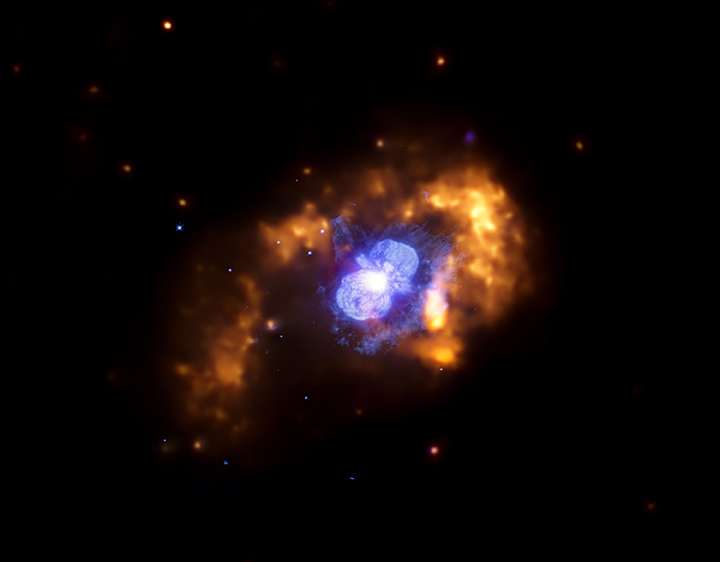actually that is well put.
Thanks, but....
It is the fact that this phenomena can not be directly observed that casts doubt on the whole issue which continues to frustrate Big Bang theory enthusiasts. [as far as I can read]
I can't imagine after absorbing what I said why you would say such things. The phenomena
is directly observed, in the same way that any observation is direct. Using a ruler, measuring mass with a scale, whatever. And "Big Bang theory enthusiasts" sounds pretty derogatory. Big Bang Cosmology is pretty much universally accepted in the scientific community because it is so well grounded in observational evidence. They would no more call themselves "enthusiasts" than anyone would consider themselves to be a "Newton's first law enthusiast".
The scientific method is thoroughly tested with this issue of cosmic metric expansion and all other theories that are directly related.
Yes. Which is why it is utterly wrong for you to have brought it up here as if it shows a limitation of the scientific method or its application.
The issue here though is that the scientific method has been applied rigorously yet regardless of how well it is applied science is unable to rule out the possibility of unknown and unknowable factors that could mean that the universe of today defies currently held belief. [not knowledge or fact but belief]
That's a fundamental feature of science, not limited to the Big Bang Theory. By definition, all theories are provisional/no theory is ever considered 100% proven. Is that a limitation? I don't think it is. I think it is a strength. Why? That's the very thing that separates science from religion. In religion, once an idea is established as true, it becomes un-challenge-able doctrine. As a result, religion can never be wrong -- even when it clearly is. That's a big problem. In science, there is no such problem.
Being able to challenge what is Known To Be True is
the primary driver of the scientific revolution. It is what brought us out of the dark ages and caused the modern age to happen. That's what's so wrong about you creating this thread: you see science's greatest strength as a weakness!
The apparent issues of missing mass and energy and the existence of "Dark Flow" immediately casts serious doubts on any thing to do with our understanding of what the universe is actually doing today.
So says you. Tell me: what percentage uncertainty does that issue cause in the history of M51's motion over the past 23 million years?
The issue of missing mass is one of explanation, not data. See, your objection is perhaps even worse than previously stated: the question of what happens next is a matter of a mathematical model. Curve fitting of the data. That's not even really a matter of theory, which is an explanation of how/why expansion happens at the rate it does. Saying that expansion is happening at a certain rate, to within a few hundredths of a percent, is just a curve fit of the data and doesn't require an understanding of why it is happening: You don't have to understand General Relativity to calculate the trajectory of a ball that is already in your glove!
I know you will say no doubt that I am being overly pedantic and that my attitude is being too precise in what the difference between fact and theory [belief] is, but that is basically what I am wishing to discuss and how the scientific method is limited to that which can be directly observed.
Good Lord, no!!!!!
*I* am pedantic. I am such a stickler for adherence to definitions I piss off my friends on a fairly regular basis when they get loose with their talk. Your problem here is quite the opposite! You don't understand the definition well enough to even have a workable utilization of it, much less school others on it!
Possibly all scientific "knowledge" need a rating scale:
for example:
Newtons Laws of universal gravitation : rated : 9/10
Einsteins General relativity: rated : 8/10
Einsteins Special relativity: rated : 7/10
Ohms Law: rated : 10/10
Big Bang Theory : rated : 6/10
Cosmic metric expansion: rated : 6/10
The existence of Dark Flow anomaly : rate : 6/10
"Out of Africa" evolution Home Sapiens: rated: 6/10
[evidence has emerged that currently challenges this previously considered "fact" by some members of the scientific community]
and so on...depending on degree of conforming to the scientific method...
and not just lumping them all under the rating of 10/10 or 9/10 etc which appears to be the way they are presented upon publication etc.
What do you think?
Well, your ratings are wrong and my perception of such things has always been that people stick with the last thing they learned formally. And most people learn Newton's laws in high school but that's as far as they go. That's why crackpots always fixate on them as the Ultimate Laws.
So, Newton's Law of gravity: 9/10? Not bad if we're on a linear scale. But Newton's Law was supplanted by GR because even with 19th century technology it was known to be pretty obviously flawed. So while it retains a level of relevance in its domain of applicability, GR has supplanted it with an accuracy orders of magnitude better. For example, GR's accuracy with respect to the precession of Mercury is on the order of 0.1% whereas Newton gives us an error of 7%. So if Newton's "rating" by your scale is 9.3 (you were pretty good on that one), GR's would have to be 9.99. And that's only because Mercury's precession isn't all that easy to measure. Other tests give better results.
Special relativity is also at least that good.
Big Bang cosmology? At 9.98 by my previous estimate that's not as good as SR/GR, but still an order of magnitude better than Newton's Law.


